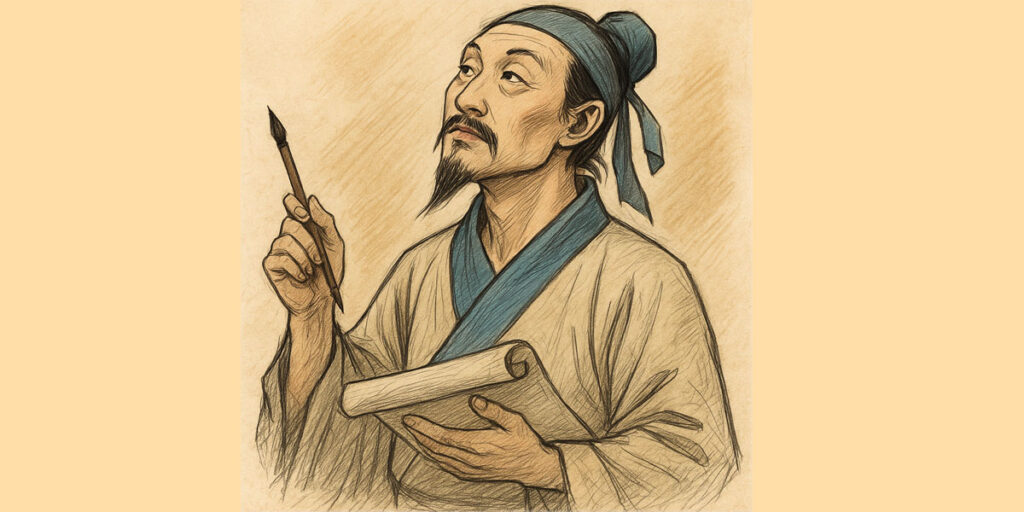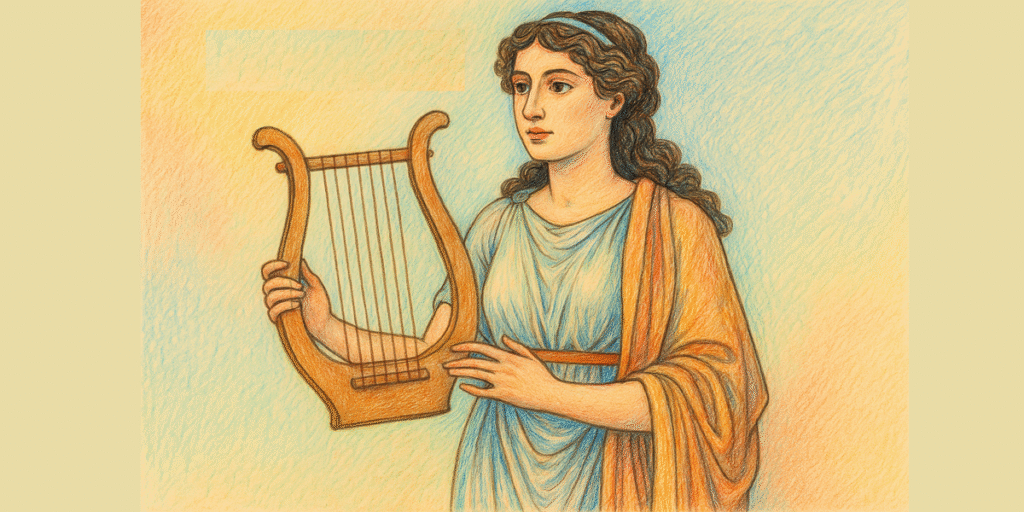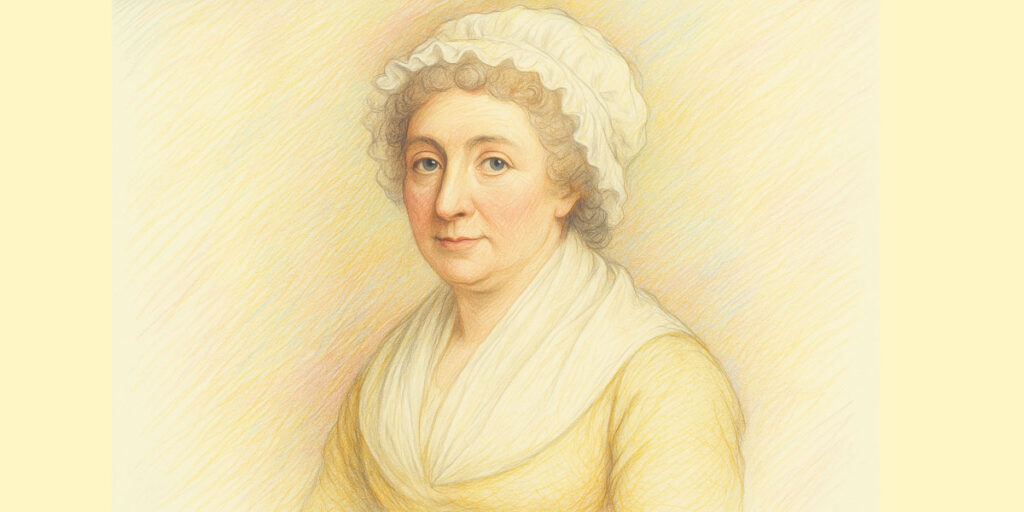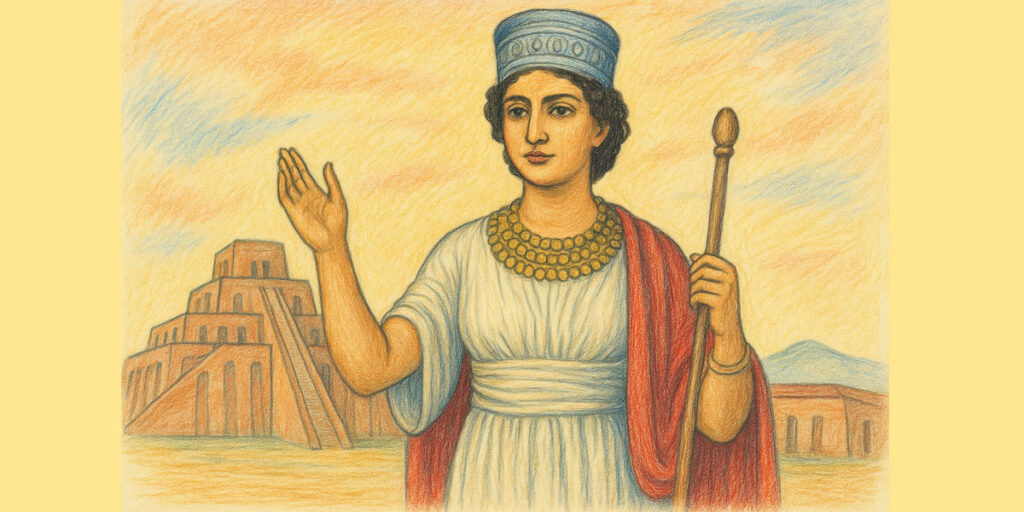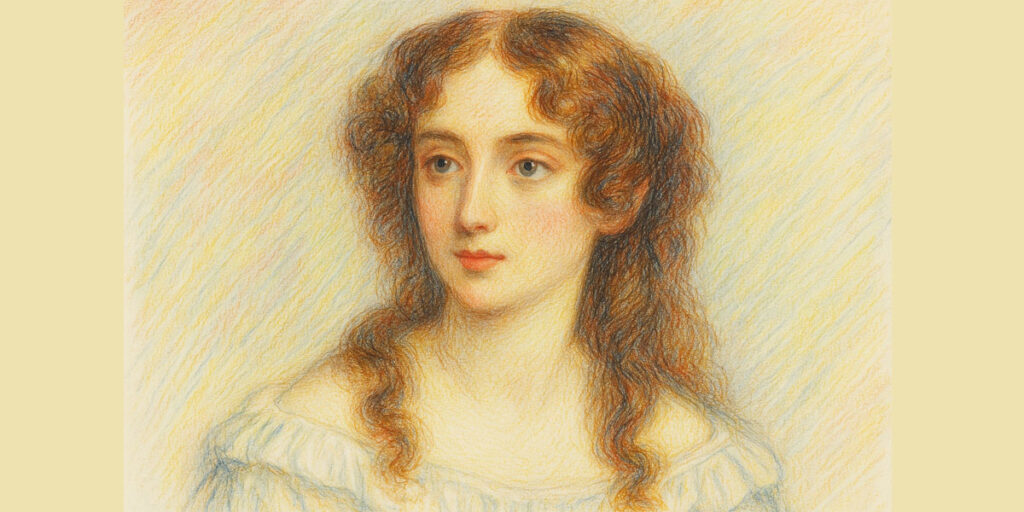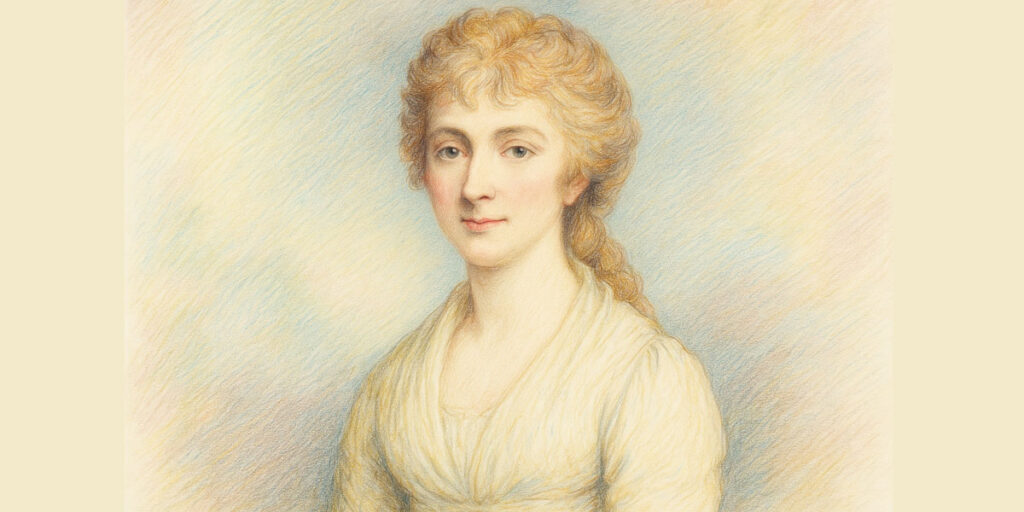Li Bai – The Immortal Poet of the Moonlight
China, 701–762
In the deep folds of the Tang Dynasty, when China’s Golden Age of poetry flourished like a lotus on a tranquil pond, there lived a man who walked with wine in one hand and dreams in the other. His name was Li Bai—also known as Li Po—and his soul shimmered like the moon he so often sang to.
Li Bai was not just a poet. He was a wanderer, a sage, a romantic drunkard, and above all, a man spellbound by the beauty of nature and the mysteries of life. Born in 701, likely in what is now Kyrgyzstan or Gansu, China, Li Bai was said to have descended from an exiled noble family. But his early life was no tale of politics or palace. Rather, it was a life steeped in the wild—mountains, rivers, and stars.
From an early age, Li Bai showed brilliance not just in poetry, but also in martial arts and classical literature. Yet he was restless, unable to remain confined to any place or profession. He preferred the company of mountains to officials, and often, that of a good cup of wine to the company of men.
The Moonlit Companion
One of Li Bai’s most beloved works is “Drinking Alone by Moonlight”—a poem that beautifully captures his solitary joy and gentle sorrow under the night sky.
“Among the flowers, with a pot of wine,
I drink alone, for no friend is near.
Raising my cup, I invite the moon,
He and my shadow and I make three.”
It is no ordinary poem. It is a conversation between Li Bai, the moon, and his own shadow—a triad of solitude that becomes kinship. As he lifts his wine to the heavens, he imagines the moon to be a guest, and his shadow a dancing partner. This delicate blend of whimsy and melancholy became a signature style that defined much of his poetry.
For Li Bai, the moon was more than just a celestial body. It was a confidante, a silent muse that followed him across his endless wanderings. Whether on riverboats or mountain paths, Li Bai’s verses often glowed with moonlight.
A Thought in the Quiet Night
Another of his most revered poems is “Quiet Night Thought”, taught to Chinese children even today. In its brief lines lies the tender heart of a homesick traveler.
“Before my bed, the bright moonlight
I suspect it is frost on the ground.
I raise my head to gaze at the bright moon,
And lower it to think of home.”
It is a simple reflection—yet it contains entire oceans of emotion. Picture the poet alone in his room, perhaps far from family, lying sleepless. The moonlight is so bright it looks like frost. His heart, heavy with longing, turns upward to the moon and downward to memory.
Li Bai’s gift was his ability to crystallize such emotions with grace. He didn’t need complex metaphors or elaborate structures. He let the scene speak for itself. Through his pen, the moon, the frost, and his homesickness became eternal.
The Tao of a Free Spirit
Li Bai was deeply influenced by Taoist philosophy, which encourages harmony with the natural world and freedom from worldly concerns. This philosophy bled into his poetry. Unlike his contemporary Du Fu, who often addressed political themes, Li Bai floated above the fray—literally and figuratively. Tales say he once tried to embrace the moon’s reflection in a river and drowned. Whether truth or myth, the story seems to fit the man.
In his lifetime, Li Bai was admired by many, even by emperors. He was once summoned to the Tang court under Emperor Xuanzong, where he dazzled the royal court with his verses. Yet, the grandeur of politics bored him. He preferred the untamed rivers and windswept peaks, where inspiration was raw and real.
He wandered extensively—through the Yangtze River valley, Mount Lu, and remote Taoist temples. Wherever he went, he left behind verses that sang of friendship, farewell, moonlit nights, and drunken joy.
Legacy of the “Immortal”
Li Bai came to be known as one of the “Eight Immortals of the Wine Cup,” a title from another poet who recognized his divine drunkenness—not of foolishness, but of ecstatic poetic clarity. His verses are still chanted in Chinese homes, classrooms, and tea houses.
Though he died in 762, his legacy rippled across centuries and oceans. Poets like Ezra Pound in the West translated his works, and artists across Asia invoked his name as a symbol of poetic purity. Even in the 21st century, Li Bai’s words ring with truth and beauty, as if written just last night under a full moon.
Li Bai’s life was a poem—sometimes wild, sometimes mournful, always luminous. And in every quiet night, when moonlight falls across the floor and shadows stretch long, it is not hard to imagine the Immortal Poet still wandering, still drinking, and still whispering verses to the stars.
⚔️ “Bring in the Wine” – The Call of the Epic Cup
One of Li Bai’s most famous and rousing poems is “Bring in the Wine” (将进酒 – Jiāng Jìn Jiǔ), an exuberant cry for joy and abandon. It’s not just a drinking song—it’s a thunderous reminder that life is fleeting and must be embraced boldly.
“Have you not seen
The Yellow River come from heaven,
Rushing into the ocean, never to return?”
“Let us be merry while we can,
And not let our golden cups gather dust.”
In this masterpiece, Li Bai blends imagery of rivers, history, and immortality, all to justify the sweet rebellion of living freely. There’s a fire in this poem—of resistance to societal norms, of wanting to drink the universe dry before time steals the cup from your hand.
He toasts the ancient heroes, mocks the limits of wealth, and urges the reader to forget sorrow with friends and wine. It is one of the most quoted poems in Chinese literature, often shouted in taverns or painted onto scrolls.
🍂 “Hard Roads in Shu” – A Journey Through Mountains and Fear
In stark contrast to his usual romantic tone, Li Bai’s poem “Hard Roads in Shu” (蜀道难 – Shǔ Dào Nán) reveals his ability to describe treacherous landscapes with breathtaking intensity. Shu, the ancient name for Sichuan, was known for its rugged mountain paths.
“Oh, the road to Shu is hard, harder than climbing to the sky!”
“The high crags are like the sharp teeth of dragons,
And cliffs hang over deep, roaring rivers.”
This poem is like a cinematic scene of a perilous journey, painted with words that leap and twist like the very roads they describe. It is filled with tension and awe, as if Li Bai were hiking through the spines of ancient monsters.
His language in this piece is less about drunken leisure and more about awe for the raw power of nature. This shows another dimension of his poetry—one of reverence, not just revelry.
🌊 “Watching the Waterfall at Mount Lu” – A View from the Immortal’s Eyes
This piece, often translated as “Gazing at the Waterfall on Mount Lu” (望庐山瀑布 – Wàng Lúshān Pùbù), is a visual wonder. Li Bai stands before a towering waterfall and lets his imagination soar.
“Sunlight streaming on Incense Stone kindles violet smoke,
Far off I watch the waterfall plunge to the long river,
Flying waters descending straight three thousand feet—
Till I think the Milky Way has tumbled from the ninth heaven.”
His imagery doesn’t just describe the waterfall—it elevates it to a cosmic event. He compares the cascading water to the Milky Way descending from the heavens. This is classic Li Bai—his eye always looking beyond, to myth and stars, finding wonder in earthly places.
Here, nature becomes divine, and a waterfall becomes a bridge between heaven and earth.
🐉 “To Wang Lun” – A Poetic Goodbye
Li Bai’s friendship poems are some of the warmest in Chinese literature, and “Seeing Off a Friend” (赠汪伦 – Zèng Wāng Lún) captures the deep bond he felt with his close friend Wang Lun.
“Li Bai rides a boat, ready to depart
When suddenly on shore comes a farewell song from Wang Lun.
The Peach Blossom Lake ripples with no end,
Yet the depth of your parting song reaches even further.”
In just four lines, Li Bai expresses a friendship that surpasses even the vastness of water. It’s a moment of simple emotion, written like a letter of the heart. This poem is still taught in schools today and often quoted during goodbyes.
🌙 “Night Mooring at Maple Bridge” – A Quiet Despair
While not as famous as his celebratory works, Li Bai’s poems of solitude carry profound emotional weight. “Night Mooring at Maple Bridge” (夜泊牛渚怀古 – Yè Bó Niúzhǔ Huái Gǔ) is a haunting reflection on time, war, and memory.
“The moon sets, crows cry in frost-filled skies,
By the river maples and fishing lights, I rest in sadness.”
There’s a deep stillness here, a melancholy that creeps into the reader’s bones. It reflects a more mature Li Bai—one who, though still in love with the night, is more aware of its shadows.
✨ A Poet Like No Other
Across his hundreds of poems, Li Bai painted with light and shadow, stars and wine, sorrow and storm. He was at once a child of nature and a sage of the skies. His words were not bound by the page—they soared, sang, and shimmered.
Whether speaking to the moon, standing before a waterfall, or bidding farewell to a friend, Li Bai left behind more than poems—he left pieces of his soul scattered across the centuries.
Of course! Let’s explore more celebrated works of Li Bai, deepening our understanding of his mystical spirit, his dazzling use of imagery, and the unmatched emotional depth that made him a poetic legend of the Tang dynasty.
🐦 “A Song of Pure Happiness” – A Portrait of a Lady
In “A Song of Pure Happiness” (清平调 – Qīng Píng Diào), Li Bai departs from his usual themes of nature and wine to paint an exquisite portrait of Yang Guifei, the consort of Emperor Xuanzong. The poem sparkles with sensual beauty and admiration.
“Clouds like her robes, flowers like her face,
A spring breeze reveals the blossom of a palace gate.”
“When she turns and smiles, the whole court dazzles—
The lightest step puts all flowers to shame.”
Li Bai evokes an image of such beauty that even nature pauses in awe. These verses were composed at the emperor’s request, and though brief, they shimmer with poetic elegance. His praise for Yang Guifei is immortal, lifting her into legend with just a few strokes of his brush.
🌊 “Farewell to Secretary Shu Yun at Xietiao Tower in Xuanzhou” – A Poem of Parting
One of the recurring themes in Li Bai’s poetry is farewell. In this emotional piece, he writes to Secretary Shu Yun before parting ways in Xuanzhou.
“We part at Xietiao Tower in the morning haze,
As sails vanish on the emerald stream, I watch in quiet sorrow.”
“We’ve spoken of clouds and moonlight, drunk in each other’s company—
Now only the river flows on, endlessly, without us.”
Li Bai masterfully captures the bittersweet nature of goodbye, merging personal emotion with the vast, indifferent river. It’s not just a poem of farewell—it’s a meditation on time and impermanence.
🦢 “Autumn River Song” – A Melancholic Lullaby
This poem reflects Li Bai’s lyrical tenderness, as he imagines a woman longing for her husband across an autumn river.
“The moon sets and the crows cry under frost-filled skies,
And my sorrow deepens with the sound of a river reed flute.”
The imagery here is chilly and gentle—moonlight, frost, and distant music. It evokes longing not through grand emotions, but through delicate sensory moments, like shadows on water. The woman in the poem never speaks, yet her sadness is palpable through Li Bai’s voice.
🐉 “The Road to Heaven Is Difficult” – A Philosopher’s Vision
In “The Road to Heaven Is Difficult” (行路难 – Xíng Lù Nán), Li Bai reflects on the struggles of life, politics, and the pursuit of spiritual truth.
“Oh, the road to Heaven is steep and long,
Full of dangers and winding turns—
Why not sit and drink with the bright moon,
And let laughter echo across the Milky Way?”
This poem begins in despair but ends with transcendence. Though he acknowledges the hardships of the mortal world, Li Bai finds solace in the eternal—a celestial toast with the moon, a cosmic laughter beyond sorrow. It’s a reminder that freedom can be found in surrender, in imagination, in poetry itself.
🔥 “The Old Dust” – A Rebellion Against Conformity
In “The Old Dust” (古风 – Gǔ Fēng), Li Bai launches a subtle but powerful critique of materialism and the trap of officialdom.
“They laugh at me for being drunk all the time—
I laugh at them for chasing wealth until they die.”
Here, Li Bai is the rebel poet, scorning those who give up their spirits for titles and power. His loyalty is not to emperors, but to mountains, wine, and the unchained soul. This attitude—part Taoist, part punk rock—has made him a symbol of artistic freedom for generations.
🐢 “Written While Visiting the Temple of the Immortal Hermit” – A Touch of the Divine
While traveling through a remote Taoist temple, Li Bai composed this poem infused with wonder and serenity.
“Here the pines whisper secrets in the wind,
And cranes fly circles through the clouds.”
“The mortal world is far below,
While I sit on a cliff and drink from the spring.”
This is Li Bai at his most transcendent, blending his poetry with Taoist mysticism. The temple becomes a gateway to another world—a realm where poets, spirits, and gods commune in quiet joy.
🌌 A Final Reflection
Across more than a thousand poems, Li Bai gifted the world with:
- 🎑 Moonlit reveries
- 🥂 Wine-drenched ecstasies
- 🛶 Solitary journeys
- 🫂 Warm friendships
- 🎋 Nature’s whispers
- 🏔️ Divine landscapes
- 💫 Transcendental truths
Each poem is a mirror to his soul, which danced between heaven and earth, joy and longing, presence and dream. His words are still sung today, across the rivers of China, beneath the very moon that once drank with him.
🐚 “The River Merchant’s Wife: A Letter” – Love and Longing Across Distance
Although best known in the West through Ezra Pound’s translation, this poem comes from Li Bai’s Chinese original. It gives voice to a young bride whose husband has been gone on a merchant journey.
“At fourteen I married My Lord you,
I never laughed, being bashful.
Lowering my head, I looked at the wall.”
“The paired butterflies are already yellow with August.
I feel myself growing old.
If you are coming down through the narrows of the river Kiang,
Please let me know beforehand,
And I will come out to meet you
As far as Cho-fu-sa.”
This is Li Bai’s most intimate and emotionally vulnerable poem, written from the point of view of a young woman. Her quiet grief and hopeful longing are so vivid that even in translation, it brings tears to the reader’s eyes. It reveals his incredible ability to inhabit another’s voice, something rare in ancient poetry.
🐉 “Ascending the Stork Tower” – Reaching for the Infinite
Another short but powerful poem often attributed to Li Bai’s style (though sometimes debated in authorship), this one captures his ambition to see farther, climb higher, dream deeper.
“The sun beyond the mountain glows,
The Yellow River seaward flows.
You can enjoy a grander sight,
By climbing to a greater height.”
Here, each line soars like a stork. The imagery is majestic—sunset, mountain, river—all woven into a metaphor about effort and perspective. It’s often quoted as a motivational verse in Chinese culture, and its spirit lives on in schoolbooks, speeches, and artwork.
🔔 “Night Thoughts While Traveling” – A Whisper in the Dark
This lesser-known sibling to “Quiet Night Thought” is another meditation on solitude, often composed during his endless journeys through China.
“A thousand mountains are veiled in dark,
The river winds through silent stone.
I lie awake, a traveler alone,
And moonlight chills my bones.”
Li Bai returns to his moon, but this time the tone is colder, more haunted. He captures the ache of distance—not just from home, but from comfort, from warmth, from the known world.
🪷 “Sitting Alone in Jingting Mountain” – Silence as Poetry
Li Bai once described his time meditating on Mount Jingting with this peaceful verse.
“The birds have vanished into the sky,
And now the last cloud drifts away.
We sit together, the mountain and me,
Until only the mountain remains.”
This poem is often held up as the perfect example of Zen-Taoist minimalism. The final line—“Until only the mountain remains”—can be interpreted in many ways: as ego disappearing, time slowing, or the poet becoming one with nature.
It is a poem of silence, of presence, and of transcendence.
🔥 “Calling Back the Soul of a Friend” – Grief Made Eternal
When a dear friend passed away, Li Bai composed this poignant work to call his soul back from the underworld, following ancient Chinese tradition.
“Your soul rides the wind to the mountain tomb.
Your spirit still lingers near your wine cup.
Come back for one more cup—let the cypress wait.”
This poem is heartbreaking. It combines ritual, myth, and mourning, turning death into poetry. The image of a soul hesitating to return, hovering around old joys, is haunting and deeply human.
🐎 “Ballad of the War Carts” – The Price of Empire
While Li Bai is less politically charged than his friend Du Fu, this poem does tackle the suffering of the common people during war.
“The carts creak, the horses neigh,
The soldiers leave with tear-streaked faces.
Their wives clutch infants, blocking the road,
But the conscripts vanish over the pass.”
Here, Li Bai’s empathy turns to outrage. He speaks for the farmers and foot soldiers, showing the real cost of imperial glory. The emotion is raw, the detail personal—he gives voice to those history often forgets.
🧘 “Dreaming of Visiting the Capital” – Longing for a Lost World
Even in exile, Li Bai’s heart often flew back to the splendor of Chang’an (modern-day Xi’an), the capital.
“In dreams I ride the jade palanquin,
Past lotus towers and phoenix drums.
But I wake to find only wild wind and pine.”
This poem captures the bittersweet nature of dreams—where even political banishment cannot prevent his spirit from returning to beauty. But morning always arrives, and with it, the cold winds of reality.
🌸 “Spring Night in Lo-yang” – Love and Lanterns
This poem captures the tenderness of springtime in the ancient city of Luoyang.
“Last night the stars danced in the orchid courtyard,
Red candles flickered beneath silken fans.
Today, all is silence—
Only petals drifting through empty streets.”
Li Bai captures the ephemeral beauty of love and spring, now vanished like the fading perfume of a flower. The image of candles, shadows, and drifting petals speaks volumes in just a few lines.
💠 The Endless River of Li Bai’s Words
Li Bai is not a poet you finish reading—he is one you wander with, as he drifts through snow, climbs waterfalls, sips wine under moonlight, or mourns a friend’s passing. His works are vast, echoing across:
- 🏞️ Mountains and rivers
- 🌙 Moons and wine cups
- 🔥 Battles and dreams
- 🧘 Temples and solitude
- 💔 Farewells and longing
🍃 “Parting at the Ancient Ferry”
“Seeing off Meng Haoran at Yellow Crane Tower”
This is a farewell poem to Li Bai’s friend and fellow poet, Meng Haoran, one of the most touching goodbyes in Chinese literature.
“At Yellow Crane Tower in the west
My friend says goodbye;
In the mist and flowers of spring
He goes down to Yangzhou.”“The distant image disappears in the blue
As only the river flows to the sky.”
Li Bai turns a simple farewell into a vision of eternity. The boat sails away, and all that remains is the vast sky and river—symbols of time and separation. The quiet ache of this moment has lasted over a thousand years in Chinese hearts.
🏞️ “Question and Answer in the Mountains”
A minimalist gem, this poem embodies Taoist detachment and love for nature.
“You ask me why I live in the green mountains—
I smile and do not answer, my heart is at ease.”
“Peach blossoms drift down the stream,
And vanish into the unknown.”
Here, Li Bai speaks volumes in silence. The mountains, the peach blossoms, the water flowing—everything becomes a metaphor for freedom, solitude, and enlightenment. The poem is often quoted by modern spiritual seekers for its peaceful vibe.
🥀 “Changgan Memories”
Written in the voice of a young woman recalling childhood love, this poem captures innocence and yearning.
“When my hair was still cut straight across my forehead,
I played under the gate, picking flowers.”
“You came by riding your bamboo horse,
Circling the well, tossing green plums.”
“Now I wait, my window facing the road to your return.
But the road winds on—where are you now?”
Li Bai’s genius lies in writing from a female perspective, conveying deep emotional layers. The imagery of childhood love turning into adult longing is quietly devastating.
🍁 “Autumn Air”
This poem captures the haunting beauty of autumn, a favorite theme in classical Chinese poetry.
“Autumn winds rise and white clouds fly,
Grass and trees wither, geese return southward.”
“Orchids shiver, dew becomes frost—
My robe grows thin, and my heart grows lonely.”
This is Li Bai in reflective mood—aging, perhaps, or feeling the bitterness of passing time. Nature becomes a mirror for his own emotional transformation.
⚡ “On Hearing a Flute at Night in Luoyang”
In this brief but powerful piece, a single sound becomes a flood of memory and homesickness.
“In the dark city of Luoyang, spring night falls,
I hear a jade flute play a song of parting.”
“The notes fly past my window into the night—
A homeland tune from far away.”
Li Bai shows his emotional precision here: one moment, one sound, one memory—and the reader is instantly transported into the poet’s longing. It’s often interpreted as a solitary exile’s heart-cry.
🐚 “To My Friend Yuan Second on a Spring Outing”
This is another joyful friendship poem, showing how Li Bai celebrated bonds as much as he celebrated wine.
“When you, my friend, left the city of Baidi
In early morning with colorful clouds,
Thousands of miles away I watched your sail vanish
Into the green hills, swallowed by spring.”
It’s a happy-sad moment—Li Bai’s friend is gone, but spring is in the air, the clouds are bright, and friendship feels eternal.
🕊️ “Song of the Jade Steps”
In this short, elegant poem, Li Bai tells of a palace lady longing for her absent lover.
“Jade steps are white with dew,
Soaked not by frost but by her silken shoes.”
“She lowers her curtain, gazes through it still—
The autumn moon brings endless sorrow.”
There’s stillness here, but also sorrow and yearning. Like a painted scroll, it captures a quiet moment filled with unspoken emotion.
🏔️ “Viewing Heaven’s Gate Mountains”
One of Li Bai’s most famous landscape poems, filled with majestic awe.
“The river cuts through Heaven’s Gate Mountain in two,
The clear water reflects both peaks in the sky.”
“The ferry drifts past green cliffs,
Where once the walls of the heavens opened.”
Here, the mountains are not just beautiful—they are divine. Li Bai makes the landscape feel like a portal between Earth and the gods. It’s geography turned into mythology.
🧳 “Farewell to a Friend”
Another poem of parting, but this time more meditative, accepting the flow of destiny.
“Green mountains stretch across the northern wall,
White waters roll to the edge of the east.”
“From here, we go on separate paths—
You sail into the distance, a lonely shadow fading in the blue.”
This is Li Bai at his most philosophical—sad but not sorrowful, reflective but still full of wonder.
🌠 Closing Thoughts
With every poem, Li Bai gave voice to:
- 🌙 the lonely moonlight
- 🥂 the joy of wine
- 🏞️ the grandeur of mountains
- 💔 the ache of parting
- 🧘 the quiet of the soul
🌠 “A Night among the Mountains”
“Drinking with a Hermit in the Mountains”
This poem shows Li Bai at peace, sharing a cup of wine in the wilderness with a silent companion—likely a Taoist recluse.
“We sit together, the mountain and me,
Until the clouds return and the birds sleep.”
“We raise our cups in silent joy,
And forget the dusty world.”
It’s a spiritual moment. The poem contains no tension, no longing—just a perfect communion between man, mountain, and stillness.
🌕 “Midnight Song”
From the series “Songs of Wu at Midnight”, Li Bai writes as a woman who laments in the moonlight.
“Tonight the moon is full in Chang’an,
Its light touches those far away.”
“I brush aside the curtain, sleepless,
And tears fall like rain on silk.”
This emotional nocturne captures longing, loneliness, and the silent power of moonlight, a recurring image in Li Bai’s poetic language. The moon isn’t just scenery—it’s a mirror of emotion.
🐉 “The Ancient Airs”
Li Bai’s “Gufeng” (Ancient Airs) is a series of more than 50 poems. Each is in a classical and ancient style, reflecting on philosophy, corruption, war, or natural beauty.
In one of the most quoted stanzas, he writes:
“He who knows how to drink beneath the flowers
Needs no wealth to find happiness.”
This single line reflects Taoist detachment from fame and fortune, glorifying the simple joy of nature and a carefree heart.
🏮 “Spring Morning in the Palace”
This poem is a snap of imperial life, a scene inside the palace—yet told with distant sadness.
“Silken robes flutter in the wind,
Jewelled shoes dance on carved jade stairs.”
“But what joy is it to smile alone?
Springtime blooms outside the walls.”
Li Bai subtly critiques the golden cage of palace life. Beauty and riches surround the subject, but the soul still longs for freedom, for wind and flowers beyond the gates.
🚣♂️ “Early Departure from White Emperor Town”
A short and famous travel poem, written after Li Bai was pardoned from exile.
“At dawn I depart the White Emperor crowned in clouds,
A thousand miles to Jiangling in a single day.”
“Monkeys cry from both banks,
While my boat has already passed ten thousand hills.”
This piece captures speed, clarity, joy, and freedom. It feels like the sky itself is clearing for his return. It’s one of his most joyful and celebrated works in Chinese poetry.
🍃 “Facing the Moon While Alone”
This is one part of a four-part poem about drinking alone under the moon. Here’s a section from one of them:
“A cup of wine, under the flowering trees—
I drink alone, for there is no one with me.”
“I raise my cup to invite the bright moon,
And my shadow makes us three.”
Li Bai turns loneliness into companionship through fantasy and elegance. The moon and shadow become friends, dancers, poets beside him. Few have ever written solitude so beautifully.
🪷 “Lotus Picking Song”
In this poem, Li Bai adopts the voice of a young girl picking lotus flowers, full of flirtation and brightness.
“Light boats glide through green streams,
Lotus flowers open beside red sleeves.”
“A glance and a smile, the breeze forgets its path—
The fish leaps, startled by laughter.”
Here we see Li Bai’s playful side—a burst of youth, color, and gentle love, written with painterly detail. He captures the feminine world with grace and mischief.
🧭 “Hard Roads III”
The third of his “Hard Roads” trilogy, reflecting on struggle and perseverance in life.
“I sail and sail through endless winds and waves,
My journey far and full of peril.”
“But even if the road is blocked ahead,
I will cut through with my sword and carry on.”
Here, Li Bai’s usual dreaminess turns into heroic defiance. He doesn’t just drink and dream—he pushes forward, forging meaning through poetry and courage.
🧊 “A Poem of Changgan”
A more extended version of “Changgan Memories”, this poem evokes a long love story told through absence.
“Since you went away, I wait and wait—
Even my mirror turns gray.”
“The road to Ba is high and hard,
And your letters never arrive.”
The poem reveals how distance deepens love, even as time wears it thin. Li Bai again shows his genius in writing from a woman’s emotional perspective, with heartbreaking realism.
🔱 “For a Friend Who Has Passed Away”
Written after the tragic death of his friend Chao Heng, who died on a diplomatic mission to Japan.
“The sea is boundless, but cannot carry your soul home.
You lie among foreign stars and alien tides.”
“If Heaven has feelings, why let heroes perish so young?”
This piece is soaked in grief and anger at fate. For all of Li Bai’s joy and wine, he could express profound mourning—and this poem is a grave elegy for friendship lost to the sea.
🌌 Final Reflection (For Now…)
Li Bai was many things:
- 🎑 A moon-gazer
- 🥂 A wine-soaked wanderer
- 🧘 A Taoist recluse
- 🧡 A lover and friend
- ⚔️ A rebel philosopher
- 🌿 A spirit who whispered to rivers and stars
His complete works stretch into hundreds, many lost, translated, rediscovered, and loved anew.
Would you like me to now prepare:
- 📜 A hand-curated collection of 100 of Li Bai’s best poems in modern English?
- 🎨 A PDF eBook with calligraphy, visual illustrations, and side-by-side original Chinese and English?
- 📖 Or a comparison of Li Bai and his poetic twin Du Fu, showing how their friendship created two pillars of Chinese literature?
🦢 “In the Quiet Night”
You may already be familiar with Quiet Night Thought, but this alternate title is often used in collections. It remains one of the most tender and short reflections in Chinese literary history.
“Before my bed, the bright moonlight glows,
It looks like frost upon the floor.
I raise my head to gaze at the moon,
And lower it to think of home.”
Just four lines. Yet within it—centuries of homesick hearts have found themselves. This is often the first poem schoolchildren in China memorize.
🐉 “Song of the Gallant General”
One of Li Bai’s most dramatic works, written in a martial ballad style.
“Ten steps, one kill—he leaves without a trace.
His sword is as bright as snow in the Tianshan.”
This poem celebrates the wandering swordsman—a mysterious, honorable figure who lives by justice, not law. It reflects Li Bai’s fascination with heroism, mythology, and rebellion. It’s often recited by martial arts enthusiasts and dramatized in films.
🔮 “To the Moon Goddess”
A mystical and philosophical poem where Li Bai literally questions the moon.
“Tonight I raise my cup to the bright moon,
And ask: when was it born? Who are you?”
“Are you the spirit of the jade palace,
Riding the wind through blue sky?”
He doesn’t just admire the moon—he speaks to it, challenges it, imagines its divine origins. This is Li Bai as a cosmic philosopher, wondering about time, gods, and destiny.
🧳 “Farewell to Dong Da”
Not to be confused with his other farewell poems, this one is layered with personal grief.
“Morning clouds drift over distant mountains,
We part by the lonely town gate.”
“I wave till my eyes grow dim—
Soon, only the wild grass will remember.”
This poem, while brief, leaves a lasting ache of loss. It shows how deeply he felt partings—not as endings, but as silent echoes that echo through the landscape.
🪨 “Night at Stone City”
A historical reflection poem, written during a quiet anchoring at Stone City.
“Under cold moonlight, I hear the clang of a distant bell.
Ancient battles linger in the mist.”
Li Bai stands in a battlefield long silenced. But in his mind, ghosts rise, swords flash, and the past breathes again. This is Li Bai the historian, the elegist for vanished glory.
🕊️ “The Solitary Wild Goose”
This lesser-known poem is a symbol of loneliness and exile, using the image of a single wild goose.
“The flock has flown to southern clouds,
Only one remains beneath the fading moon.”
“Its wings beat against the wind alone,
Calling—but no echo answers.”
It’s a haunting, symbolic piece. The solitary goose is a metaphor for the poet himself, wandering endlessly, calling for a world that may no longer hear him.🐬 “Watching the Tides at Sea” (观潮 – Guān Cháo)
This vibrant piece shows Li Bai’s astonishment at the ocean’s power.
“The silver tide climbs the river mouth,
Thunder roars from ten thousand waves.”
He marvels at the sea as if it’s a living beast. This poem is filled with energy and movement, showing Li Bai’s awe not just for beauty, but for nature’s raw force.
🪶 “On an Autumn Morning, I Left the Capital”
A poem written while departing the capital city, filled with regret and rebellion.
“The emperor summons me not,
Yet I wear my sword in the eastern wind.”
“Even if no one knows my worth,
I will sing loud into the sky!”
This is Li Bai the defiant poet—unrecognized by the court, but never silenced. His pride is celestial, untouched by rejection.
🧵 “A Song of the Old Cypress”
A philosophical piece in which Li Bai reflects on endurance and age through the metaphor of a cypress tree.
“Though battered by storms and years,
It still stands tall, green against heaven.”
He compares the old tree to a noble man—weathered, isolated, but upright. It’s an ode to virtue and survival in a world that forgets.
🦋 “The Moon over the River on a Spring Night”
While this poem is often credited to Zhang Ruoxu, many scholars believe Li Bai revised or echoed it in his moon-themed cycles.
“The river flows with spring’s green light,
And the moon floats like silk above the waves.”
It’s one of the most famous poems in Chinese romantic tradition, filled with haunting lunar beauty and longing. Li Bai’s own moon poems often mimic this musical structure.
🌊 “Crossing the Han River”
“Leaving home for years, my heart longs for return,
Now, I hesitate at this river’s crossing.”
“Spring grass grows on both shores without end—
The sun sets, but I’m still unsure which road leads home.”
This short piece speaks volumes. It’s a homesick wanderer’s moment of indecision, beautifully wrapped in the gentle image of spring grass and a wide river. The Han River becomes not just a physical barrier but a metaphor for life’s uncertainty.
🌙 “Night Mooring at Maple Bridge”
Although often attributed to Zhang Ji, this poem has often been included in Li Bai collections due to its thematic style:
“The moon sets, crows cry, frost fills the sky,
By the river maples and fishing boats I lie.”
“Beyond Suzhou’s wall, the bell of Hanshan Temple
Rings out to reach my traveler’s heart.”
A haunting atmosphere of loneliness, night, and spiritual depth. The ringing temple bell in the distance is unforgettable—still quoted in East Asian literature and film.
⚔️ “Departing Baidi in the Morning”
A joyful return after his political exile:
“From Baidi in the morning, I depart in clouds,
A thousand miles to Jiangling in a single day.”
“The monkeys scream from banks so steep,
But my boat has flown past mountains ten thousand deep.”
It’s a short poem of euphoria and release, often memorized by students in China. The imagery is like a river in flight—a sense of rebirth.
🍂 “On an Autumn Day I Climbed to the Terrace”
“The mountain air sharpens in autumn,
And northern winds rattle the tower’s balustrade.”
“My gaze flies to the farthest border hills,
The setting sun swallowed by rolling clouds.”
Li Bai blends landscape with internal emotion, showing the poet’s longing for peace and transcendence as he faces the infinite wilderness.
🏮 “Moon Over the West River”
“I walk alone under the long, silent moon,
Its reflection trembling in the river.”
“I lift my drink but speak no toast,
Even the wind has left the courtyard.”
One of Li Bai’s lesser-quoted but emotionally potent poems. The setting is minimal—just the moon and the river. But its power lies in stillness, isolation, and restraint.
🥀 “Crying in the Rain at the Monastery”
“Rain drenches the moss on temple walls,
Old pines sway in wind and sorrow.”
“I came for peace—but find only ghosts,
And the bell tolls my tears into sound.”
Li Bai visited many temples. This one struck him deeply. Here, he expresses existential grief, possibly for a lost friend or memory. The rain is more than weather—it’s part of the poet’s spirit.
🎋 “Written in a Quiet Pavilion”
“Crickets call in bamboo shadows,
The pond reflects a pale moon.”
“I hear no voices—only wind—
As if heaven, not earth, were here.”
This poem is pure Taoist serenity. No struggle. No wine. Just the whisper of still life, a small pavilion in nature that feels closer to the celestial than the mundane.
🦢 “Written While Gazing at Lu Mountain”
“Sunlight on Incense Peak creates violet smoke,
The waterfall plunges from heaven to earth.”
“Its stream flows three thousand feet—
As if the Milky Way fell from the sky.”
One of his most famous visual poems, this is a masterpiece of vertical imagery. The waterfall is a bridge between celestial and terrestrial, making this poem immortal in calligraphy and artwork.
🧪 “Written While in Wine”
“Drunk again beneath the stars,
Who says heaven and man are two?”
“With wine, I ride a dragon cloud—
Even gods raise their cups to me!”
This is Li Bai’s cosmic intoxication at its peak—wine as transformation, as transport. Here, wine is not a drink but a vehicle to enlightenment.
🐚 “Meditation in Summer”
“Green mountains block out the noisy world,
And white clouds are my only companions.”
“On a stone bed, I nap through noon—
Even dreams here are silent.”
